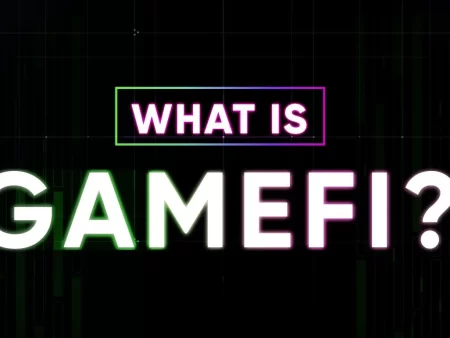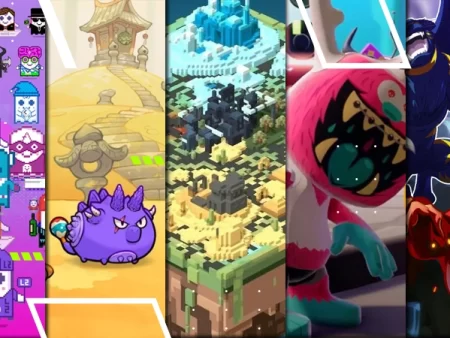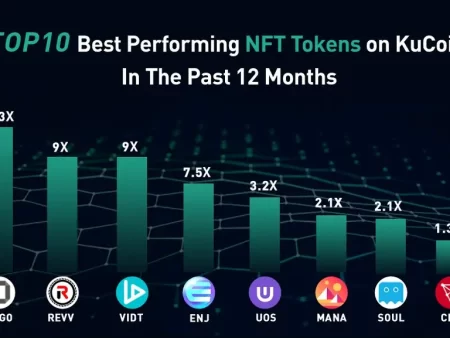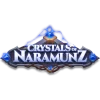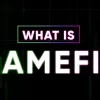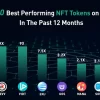Blockchain technology has disrupted various industries, and the gaming industry is no exception. Blockchain-based games offer unique features and benefits that traditional games lack. In this article, we will explore the games, their benefits, and how they are transforming the gaming industry.
Introduction
The gaming industry is a multi-billion dollar industry that has been growing rapidly over the years. With the advent of blockchain technology, game developers have been able to create games that offer unique features such as transparency, decentralization, and ownership.
What are blockchain based games?
These games are games that utilize blockchain technology to provide users with a unique gaming experience. These games are decentralized, meaning that they are not controlled by any central authority, but rather by a network of users who hold and use the game’s tokens.
Benefits of blockchain games
These games offer several benefits over traditional games. These benefits include:
- Ownership: In blockchain games, players have complete ownership of their in-game assets, and they can trade them on blockchain-based marketplaces.
- Transparency: The blockchain provides transparency by allowing players to see the game’s transactions and verify their authenticity.
- Decentralization: These games are decentralized, meaning that they are not controlled by any central authority, making them resistant to censorship and hacking.
- Security: The blockchain provides a secure platform for gaming, making it difficult for hackers to breach the game’s security.
Types of blockchain-based games
There are different types of games, including:
- Collectible games: These are games where players collect and trade unique digital assets.
- Role-playing games: These are games where players assume the role of a character and interact with other players in a virtual world.
- Gambling games: These are games where players use cryptocurrency to place bets and win rewards.
- Sports games: These are games where players can create and manage their virtual sports teams and compete with others.
Popular games
Some of the most popular blockchain games include:
- CryptoKitties: A collectible game where players breed and trade unique digital cats.
- Decentraland: A virtual world where players can buy, sell, and develop virtual real estate.
- Gods Unchained: A collectible game where players battle with unique digital cards.
- Axie Infinity: A role-playing game where players can breed and battle with cute creatures.
Challenges facing blockchain-based games
While blockchain-based games offer several benefits, they also face some challenges, including:
- Scalability: Blockchain technology is still in its early stages, and as such, it faces scalability issues.
- User adoption: The games are still new, and it will take time for users to adopt them.
- Regulatory issues: Some countries have strict regulations on cryptocurrencies and blockchain technology, which may limit the adoption of the games.
Future of blockchain games
The future of These games is bright. With the increasing adoption of blockchain technology, more game developers are creating these games, and more users are adopting them. The gaming industry is expected to see a significant transformation in the coming years as blockchain games become more mainstream.
FAQs
- What is blockchain technology? Blockchain technology is a decentralized and distributed ledger that records transactions in a secure and transparent manner.
- What are blockchain-based games? They are games that utilize blockchain technology to provide users with a unique gaming experience.
- What are the benefits of blockchain games? The benefits of these games include ownership, transparency, decentralization, and security. Players have complete ownership of their in-game assets, and they can trade them on blockchain-based marketplaces. The blockchain provides transparency by allowing players to see the game’s transactions and verify their authenticity. These games are decentralized, meaning that they are not controlled by any central authority, making them resistant to censorship and hacking. The blockchain also provides a secure platform for gaming, making it difficult for hackers to breach the game’s security.
- What are the challenges facing blockchain games? These games still face scalability issues, user adoption challenges, and regulatory issues. Blockchain technology is still in its early stages, and as such, it faces scalability issues. User adoption of the games is still low, and it will take time for users to adopt them. Some countries have strict regulations on cryptocurrencies and blockchain technology, which may limit the adoption of the games.
- What is the future of blockchain-based games? The future of these games is bright. With the increasing adoption of blockchain technology, more game developers are creating this kind of games, and more users are adopting them. The gaming industry is expected to see a significant transformation in the coming years as the games become more mainstream. Blockchain technology is likely to become an integral part of the gaming industry, providing users with a unique gaming experience that traditional games cannot offer.
In conclusion, blockchain games are transforming the gaming industry by providing users with a unique gaming experience that traditional games cannot offer. With benefits such as ownership, transparency, decentralization, and security, these games are the future of the gaming industry. While they still face some challenges, their benefits outweigh their drawbacks, and the future of the games is bright. As blockchain technology continues to evolve, we can expect to see more innovative games in the future.
Related Term
GameFi, short for “Game Finance,” is a relatively new concept that combines blockchain technology, decentralized finance (DeFi), and gaming. GameFi games typically offer players the ability to earn in-game assets that can be bought, sold, or traded on decentralized marketplaces. These games often have a play-to-earn model where players are incentivized to participate in the game’s ecosystem by earning rewards for completing certain tasks or achieving certain goals. GameFi games also tend to have a strong social and community aspect, with players collaborating and competing with each other to advance in the game and earn rewards. Overall, GameFi games are an exciting and rapidly growing area at the intersection of gaming and blockchain technology.
GameFi is a relatively new trend that combines the fast-growing markets of blockchain technology, DeFi, and gaming. Blockchain technology allows for secure, decentralized transactions and enables the creation of unique, non-fungible tokens (NFTs) that represent in-game assets. DeFi, on the other hand, provides the infrastructure for decentralized financial activities, such as yield farming, staking, and liquidity provision, which can be integrated into GameFi games to enable players to earn rewards.
One of the most popular GameFi games is Axie Infinity, which has attracted a large player base and generated millions of dollars in revenue through its play-to-earn model. In Axie Infinity, players collect and breed digital creatures called Axies, which can be used to battle other players in the game’s arena. Players earn in-game currency by winning battles, and this currency can be used to buy and breed more Axies or sold on decentralized marketplaces for real money.
Another example of a GameFi game is The Sandbox, a virtual world where players can buy and own virtual land using the game’s native token, SAND. The land can be developed and monetized by the players, who can sell their creations on the game’s marketplace for SAND or other cryptocurrencies.
GameFi games are not only about earning money but also about creating engaging gameplay experiences that keep players coming back for more. These games often have complex game mechanics and intricate ecosystems that require players to work together and compete with each other. They also have a strong social aspect, with players forming communities, sharing tips, and collaborating on projects.
As the GameFi trend continues to grow, we can expect to see more innovative and exciting games emerge, pushing the boundaries of what is possible with blockchain technology and gaming.
